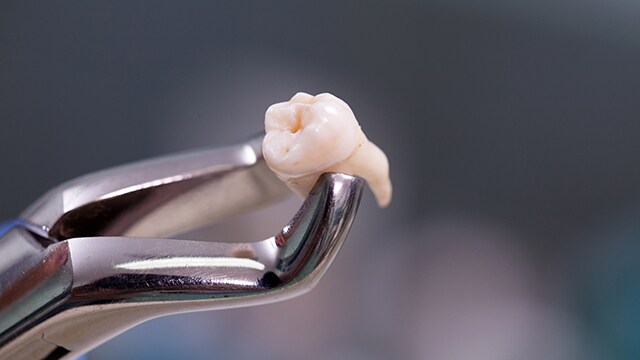Out of sight means out of mind, so you probably don't think much about your molars — unless there's a problem. After all, the large teeth found at the back of your mouth don't show when you smile, but they are some of the most important when it comes to day-to-day activities. By caring for these special teeth, you can make sure that they stay healthy and strong.
Tooth Anatomy
The strongest teeth in your mouth are also some of the last to develop. The American Dental Association notes that your first permanent set typically makes its appearance when a person is between 6 and 7 years of age, with the second molars coming in between ages 11 and 13. That's right: When it comes to back teeth, teenagers may still be teething!
Wisdom teeth, which usually come in between 17 and 21 years of age, are also considered molars. They don't have the same necessary function of your first and second set and your dentist might even recommend removing wisdom teeth to avoid crowding in your mouth.
Molar Function
Those flat, broad teeth have a very specific job when it comes to eating. While your canine and front teeth work to tear meat and bite into apples, the back teeth are meant for grinding. Whether it's a tough piece of steak or a mouthful of leafy greens, they are responsible for breaking down food before swallowing.
In fact, they're the teeth most often in contact with food after that initial bite. Their large size paired with the jagged surface make them the workhorses of your teeth.
Molar Care
Because molars are the teeth most commonly in contact with food, they're also the teeth most susceptible to accumulating food particles and developing decay. They can also be positioned close together, creating cavity breeding grounds if food, particles and bacteria get caught between the teeth. That's why good oral hygiene is so important.
Care for your back teeth by making sure to brush at least twice daily. Flossing daily helps keep the spaces between the teeth squeaky clean, while mouthwash helps eliminate bacteria.
If you have pain in a molar, see your dentist immediately. It could be a sign of a cavity. Having a cavity filled early helps stop decay in its tracks and protects the root deep inside the molar.
While you might not see them when smiling for a camera, there's no reason molars shouldn't get their close-up. The large, solid surfaces work to break down food so you enjoy every bite. Make sure to give every molar the TLC it deserves with a thorough oral care routine.





